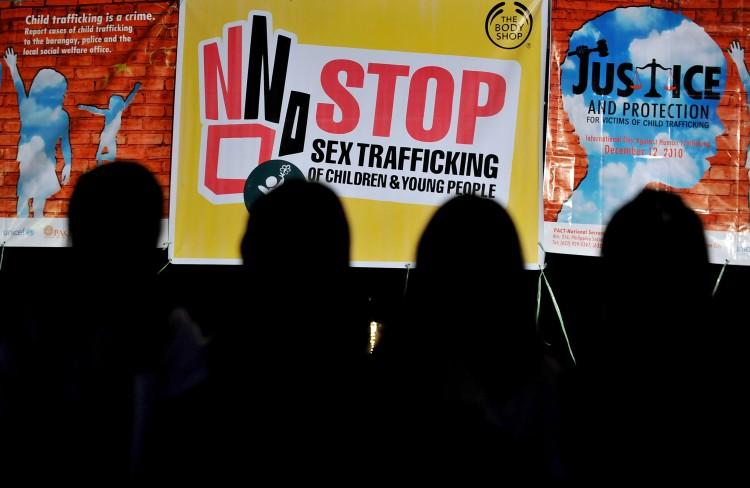OLYMPIA, Wash.—Young runaways are being picked up by sex traffickers, and a campaign to root out this practice is being launched by mayors across the Northwest.
Seattle Mayor Mike McGinn said in a press release that young women lured into the trade are being transported up and down the I-5 corridor, noting: “It is beyond the capacity of any one police department to address.” Ending sex trafficking will require cooperation between many cities in the Northwest, from Portland, Ore., to Vancouver, B.C.
“Recently, human trafficking has surfaced as a pressing issue in the Pacific Northwest,” Lori Patrick, communications assistant to Mayor McGinn said in an e-mail. This was a problem discussed at the I-5 Corridor Public Safety Summit in November.
The November summit was an initial gathering, and a framework for how the various partners will work together is evolving.
“Children—particularly young girls—are moved up and down the I-5 corridor by individuals involved in the human trafficking trade. This movement makes detection by law enforcement more difficult,” Patrick said.
Human sex trafficking often involves young girls who may have run away from home, due to abuse or other issues. The traffickers lure young girls, who they see as easy to manipulate, into prostitution—at times by pretending to care about them or befriending them, or sometimes by force.
While human trafficking may seem like a foreign issue, it is far more common in the Pacific Northwest than most people realize. “We have spoken with hundreds of girls and have been told that everyone knows Seattle is the place to come to make some serious money,” said Brian K. Taylor, detective of the King County Sheriff’s Office and one of the founders of the Genesis Project, a nonprofit set up to help victims of sex trafficking.
Recently the mayor of Seattle spoke up against backpage.com, an online classifieds site that has been used by traffickers to advertise adult services. “I felt like I needed to get involved,” McGinn said at a state legislative meeting to address human trafficking in Washington. “We have 22 cases of kids displayed on backpage.com, recovered by Seattle police in 2010–2011.”
“The challenges we face in public safety are regional in nature. Criminal enterprise gang operations involving drugs, gun trafficking, and the commercial sexual exploitation of minors is an activity that is highly mobile and sophisticated, and operates in all our cities,” said McGinn.
He and other mayors and police chiefs in the region signed a collective statement “pledging greater cooperation to combat criminal activity along I-5,” according to a Seattle City news release.
Several governmental and non-governmental groups as well as nonprofits offer help to victims of trafficking in the Northwest region. One of these groups is the Genesis Project, located in Seattle.
Run by volunteers, Genesis offers a safe place where victims can drop in to receive food, shelter, and clothing. Volunteers also help with counseling, medical and mental treatment, job training, and education needs, according to Detective Taylor.
Other leaders in Washington state, including state senators Jeanne Kohl-Welles and Tracey Eide, have advocated for victims by bringing a resolution against human trafficking to the legislature every January for National Human Trafficking Awareness Day. President Obama proclaimed January 2011 as National Slavery and Human Trafficking Prevention month, according to the resolution.
“We need people in high places to get the word out to the masses. Once a government official shows concern, other government officials will hopefully follow suit,” said Detective Taylor.




